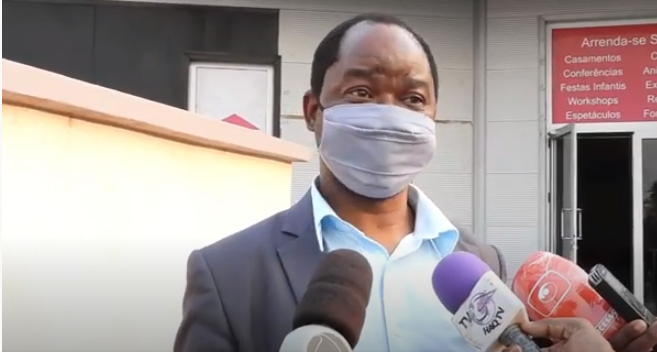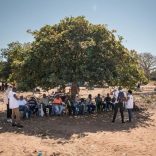Dismantling USAID could lead to mass deaths - AIM report
Mozambique: Students not yet returning to Nampula institutions – Watch

Photo: Miramar
Many of the higher and technical education institutions in the northern Mozambican province of Nampula remain practically deserted, despite the government’s authorization for them to resume classes, interrupted in March because of the Covid-19 pandemic.
Information provided by the Ministry of Health states that 28 institutions of higher and technical education in Nampula (10 publicly owned, and 18 private) were given the green light to resume face-to-face teaching after meeting the safety criteria required for preventing Covid-19.
But AIM’s own investigations show that most of these institutions have not yet resumed the academic year.
Juma Valgy, an official and teacher at the Avicenna Health Institute in Nampula city, said that hygiene and sanitation conditions have been established in the Institute, but students fear contamination with Covid-19 in their communities or on public transport.
“We have created the appropriate conditions”, said Valgy, “but we’re afraid because, in the neighbourhoods where the students live, people aren’t wearing masks. Inside the Institute we demand that everybody wear masks, but that won’t be enough to avoid contamination, because they will be exposed elsewhere”.
Ana Guina, of the Nampula Higher Institute of University Studies, a branch of the Polytechnic University, also said that the government’s guidelines have been followed in her institution.
“We’re at 100 per cent”, she said. “Now we’re waiting for a visit by the Health Brigade to train everyone in the institution”.
Classrooms which had previously held 35 students have now been redesigned to hold no more than 16. “The bathrooms have also been prepared”, said Guina, “and they have running water 24 hours a day, seven days a week”.
On Wednesday, the Secretary of State for Nampula, Mety Gondola, said the government’s assessment brigades will remain on the ground working with those in charge of the educational institutions to ensure that every angle of potential risk has been covered.
“We shall hold discussions, whenever necessary, to find a path forward, and we are sure that we are doing this correctly”, he said. “We are not forgetting that in our province we have a situation of community transmission of the disease”.
Gondola added that, as requested by the managers of the educational institutions, the government will step up its contacts with community leaders.
Inside the institutions “the level of preparation is healthy”, he said. The problems lay outside the walls of the universities and colleges. There was a great deal of uncertainty about the dangers student might face in their communities.
There had been some work in the communities, he said, “but reality shows that we must deepen this exercise”.
He also thought it essential to involve the students, through their heads of class, in the discussions on how to organize the safe resumption of classes.












Leave a Reply
Be the First to Comment!
You must be logged in to post a comment.
You must be logged in to post a comment.